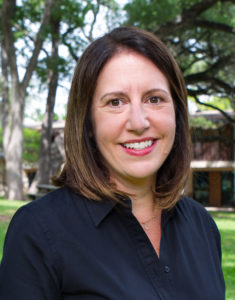The fruit of the righteous is a tree of life,
But violence takes lives away.
—Proverbs 11:30
Friends: Words matter.
They “matter” in that they make a difference. They signify. They have force and energy.
They also “matter” in that they are incarnational: They give substance to what was previously insubstantial. They give form to what was previously formless. They usher realities into the world.
Including, but not limited to, the reality that last Saturday, eleven people were murdered at the Tree of Life synagogue in Pittsburgh for being Jewish.
The truth that words matter is plaited into the DNA of our faith. The God of Genesis speaks creation into being. The God of a later testament speaks Godself into being: “In the beginning was the Word, and the Word was with God, and the Word was God” (John 1:1). In Trinitarian terms, the Word is the eternal articulation of the ultimate reality. This articulation is so lovingly replete that it overflowed and “became flesh” (1:14) in the person of Jesus of Nazareth.
The truth that words matter is also expressed in our sacramental life. We give and receive names on the thresholds of baptism, confirmation, and matrimony not only to signify new realities, but to create them.
If you question these ontological alchemies, remember that an uttered word changes its physical environment. It creates vibrations in the atmosphere. It impacts all of the surfaces within a certain range (up to 10,000 miles, if the utterer happens to be a whale). Sounds make up energy fields that soothe or unsettle, connect or corrode, pacify or pollute.
So when an angry white man enters a sacred space spewing hateful utterances that he has absorbed from a cybernetwork of similarly hateful utterances, and at the same time shoots eleven people dead, is it any wonder that the words and the reality coexist?
Words matter.
They body forth.
The lawyer, scholar, activist, and first female African-American priest Pauli Murray puts it this way in her poem “Tongues” (1939):
It is quite possible, I think,
That tongues, not money,
Are taproots of evil.
If men were mutes and could not babble
There’d be less need for conferences,
Caucuses, rallies, meetings, speeches—
The tongue dragging the body around.
And sometimes gunning it down.
I used to believe that some utterances could be neutral – neither righteous nor violent. I realize now this belief was naïve, the luxury of a time in which people were generally ready to agree that demonstrable realities were, in fact, realities.
Take, for example, the sentence “It is 62 degrees outside.” In 1996, I might have characterized this statement as both true and neutral. In 2018, however, I am compelled to call it true and therefore righteous, simply by virtue of its keeping faith with reality.
The belief in a value-neutral utterance is no longer tenable. We must relearn that every speech act either honors reality or does violence to it. It either builds something up or tears something down.
This is obvious in the public square. We desperately, viscerally, want some Tweets to stop.
But it is also true in our private lives. Take sarcasm, for example. As a child of ’70s and ’80s sitcoms, I was weaned on sarcasm. I relish it. I use it freely. And within a stable environment – one of baseline givens, of shared realities — it can sometimes pass as harmless.
Let’s say that someone I love is not ready to leave the house at an agreed-upon time – again – and I say, “Um, are you ready?” while tapping my foot and jangling my keys.
This person and I occupy a shared reality: we are mutually known. He knows that I know all of his excellencies, and I know that he knows I’m “just kidding.” So the moment may look and feel neutral, or even amusing.
And yet my words are disingenuous: I am pretending to be ignorant of his status, but I am not really. My goal is to draw attention to his imperfection. My words therefore break faith with reality and with love, and so aren’t righteous. Nor are they neutral.
Which means that, at some level, they are violent.
In times of relative security, these small linguistic ruptures may feel benign. They may get absorbed into the greater web of wellness. They may even be temporarily self-satisfying. But if, as Rowan Williams has observed, “the more we reflect on speech, the more the universe looks like a network of communication,” I wonder whether small acts of linguistic violence might have larger implications. I wonder if private jabs don’t vibrate on the same continuum as public slurs and slayings. I wonder if our daily words might also need some discipline.
It’s like when you end up with the cart with the wonky wheel at HEB: You have to keep correcting, with every inch of progress, by using muscles long unused. I wonder whether this might be required of us today, as people of the Word.
Because I notice with increasing discomfort that the righteousness or violence of a total environment accretes: that the character of our shared life isn’t the product of one single voice, or one single officeholder, or one single fanatic. Rather, the voice, the officeholder, and the fanatic are the products of our cumulative utterances. Yours. Mine. Ours. Beginning, perhaps, with the snide comment I made to my husband this morning.
Yes, this teaching is hard. “Out of the abundance [or poverty] of the heart the mouth speaks,” Jesus says; “On the day of judgment you will have to give an account for every careless word you utter” (Matt 11:34–36). This is no threat. It is a truth-telling: Our words usher in the actuality, the larger narrative, in which we choose to dwell. And they brand us as children of those stories, in permanent and consequential ways.
As a citizenry, friends, our givens are gone. Our shared realities have all but vanished. And so, perhaps, if we ever hope to correct course, the miniature acts of violence we do with our language must go, as well. It will take some muscle.
What reality will you make with your words in the coming hour?
How will the righteous Word overflow itself in you?
Which mildly violent word can you choose not to speak today?
 Dr. Claire Miller Colombo, director of the Center for Writing and Creative Expression, facilitates the delivery of writing support services for all students and develops writing- and arts-related programming for the entire community. She oversees the publication of Soul by Southwest, the seminary’s literary and arts journal, and hosts Soul in the City, an event series featuring musicians and other artists from the wider Austin community. Dr. Colombo has served on the seminary’s faculty since 2012, teaching in the areas of writing, theology, and aesthetics, and she is co-author with Cynthia Briggs Kittredge of Colossians in the Wisdom Commentary series (Liturgical Press, 2017). Dr. Colombo develops religion curricula for Loyola Press of Chicago and writes literature, language arts, and humanities curricula for several other major publishers. She serves on the editorial team of Theopoetics: A Journal of Theological Imagination, Literature, Embodiment, and Aesthetics.
Dr. Claire Miller Colombo, director of the Center for Writing and Creative Expression, facilitates the delivery of writing support services for all students and develops writing- and arts-related programming for the entire community. She oversees the publication of Soul by Southwest, the seminary’s literary and arts journal, and hosts Soul in the City, an event series featuring musicians and other artists from the wider Austin community. Dr. Colombo has served on the seminary’s faculty since 2012, teaching in the areas of writing, theology, and aesthetics, and she is co-author with Cynthia Briggs Kittredge of Colossians in the Wisdom Commentary series (Liturgical Press, 2017). Dr. Colombo develops religion curricula for Loyola Press of Chicago and writes literature, language arts, and humanities curricula for several other major publishers. She serves on the editorial team of Theopoetics: A Journal of Theological Imagination, Literature, Embodiment, and Aesthetics.
BA, Marquette University
MA, PhD, The University of Texas at Austin
DTS, Seminary of the Southwest


